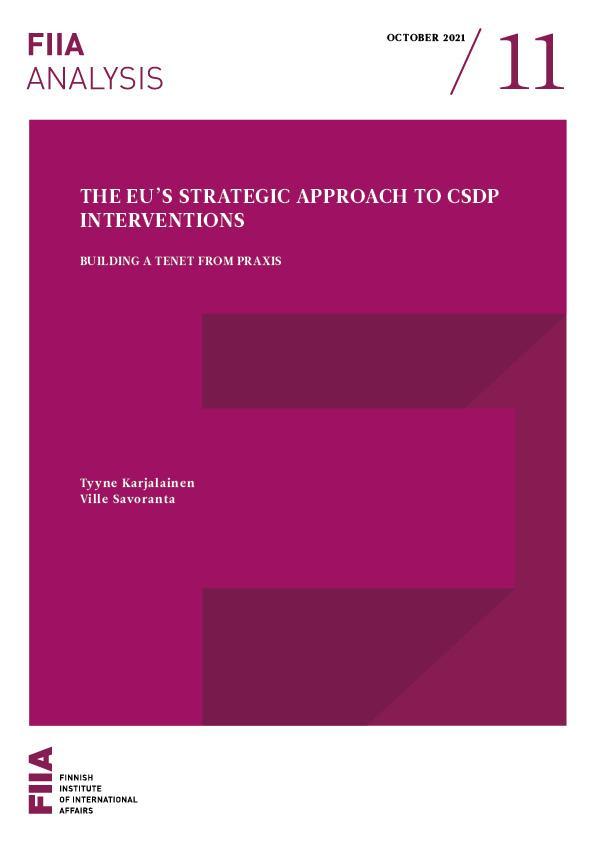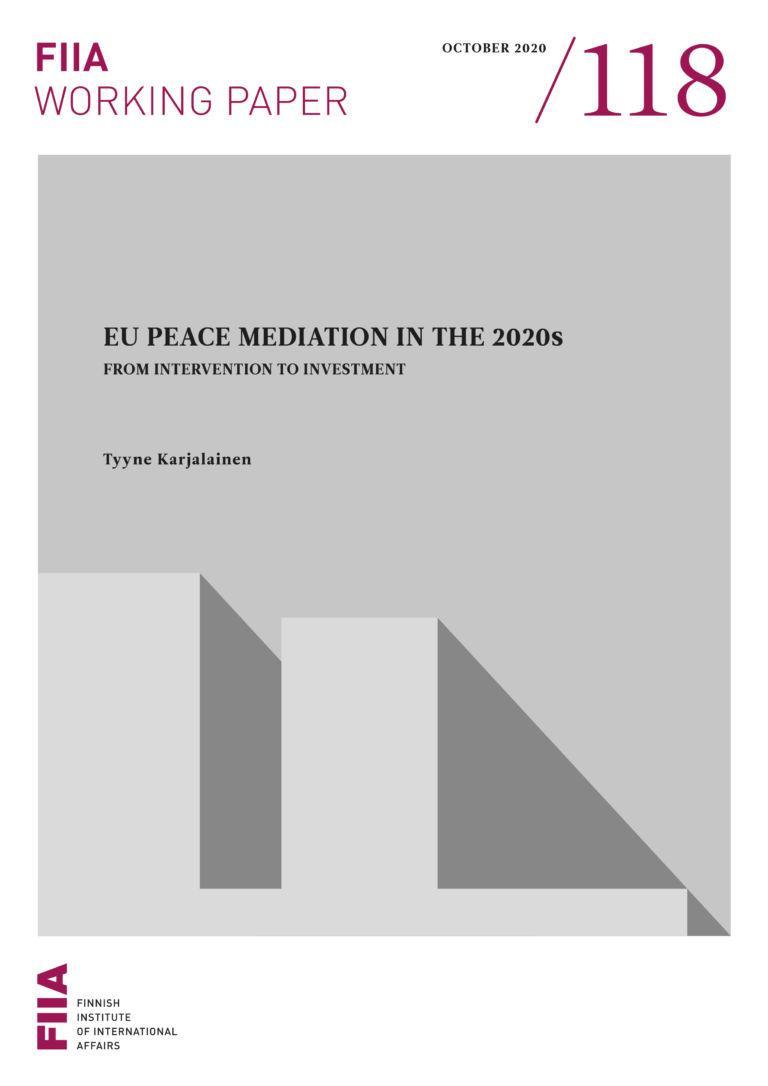Crisis management forms an integral part of the expanding toolbox with which the European Union (EU) reacts to external crises. This FIIA analysis aims at understanding the strategic approach of the EU to crisis management as it develops from the interplay between growing institutional infrastructure and member states’ reactions to crises and conflicts in their neighbourhood. In particular, this analysis investigates the creation of objectives for Common Security and Defence Policy (CSDP) interventions. Drawing on a series of expert interviews, the article challenges a tradition in European studies of analysing EU strategy based on strategic documents alone. Instead, it explores the strategic approach as it has been developed, practised and interpreted by practitioners working in the CSDP framework.
The research argues that the development of the EU’s approach is characterized by experimentalism and emergence, which are enabled by repetitive processes of intergovernmentalism and institutional learning in the framework. At the same time, discrepancies in the Integrated Approach and decision- making are found to limit the capabilities of the EU as a strategic actor. Finally, three trends are argued to curtail the EU approach to crisis management at present: a decreasing level of ambition, squeezing between other instruments for foreign and security policy, and a rhetorical shift from external to internal security.








